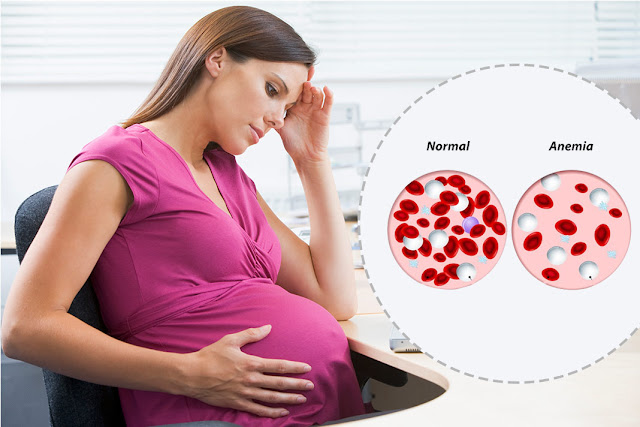Learn the risk factors for anemia Complications of anemia | healthy care
Learn the risk factors for anemia Complications of anemia
First anemia risk factors
There are many factors that lead to the occurrence of anemia, which is extremely dangerous factors. We can get to know them together and learn about their causes as one of the most important risk factors for anemia.
"Malnutrition risk factor"
Everyone, whether young or adult, is fed mostly poorly fortified iron and vitamins, especially folic acid, prone to anemia. The body needs iron, protein, and vitamins to produce enough red blood cells.
Intestinal diseases and disorders: People with diseases or intestinal disorders that affect the absorption
of food compounds in the small intestine, such as Crohn's disease and Celiac disease, are people at risk of anemia. Operation
To remove part of the small intestine, or treat the affected part of the small intestine, in which food compounds are absorbed, can lead to a deficiency in certain food compounds, and then to anemia next.
Menstrual cycle
Women of fertile age are, in general, the most susceptible group to iron deficiency anemia, compared to men. This is because women lose amounts of blood, and as a result, they lose iron, too, during their menstrual period.
"Pregnant women at risk of anemia"
Pregnancy: A pregnant woman is very susceptible to iron deficiency anemia because the iron stock available to her should support a larger volume of blood than normal and also be a source of hemoglobin that the fetus needs for growth and development.
Chronic Diseases and Conditions
Chronic diseases and conditions: People with cancer, Renal failure or Hepatic failure, or any other chronic medical condition, may be vulnerable to the development of anemia called "anemia associated with chronic diseases" (anemia as a symptom of chronic disease) ).
These medical conditions may cause red blood cell deficiency. Also, slow but chronic blood loss, caused by peptic ulcers, or ulcers elsewhere in the body, may lead to depletion of iron stores in the body, thus causing iron deficiency anemia.
Other genetic factors
Genetic factors: If there is a family member who suffers from one of the hereditary causes of anemia, such as sickle cell anemia, this constitutes a risk factor for anemia, on a genetic basis.
Complications of Anemia
If anemia is not treated, it may lead to the appearance of various side effects and complications, including: -
| --- | Hyper fatigue (excessive fatigue): In difficult anemia cases, the patient may feel tired enough to prevent him from performing his very simple daily duties, as he is very tired and difficult to play or work.
| --- | Heart problems: anemia may cause an acceleration and irregular heartbeat - arrhythmia (Arrhythmia). In anemia, the heart must pump more blood to compensate for the lack of oxygen in the blood. This may even lead to "heart failure".
| --- | Nerve damage: Vitamin B-12 is necessary and vital not only for the production of healthy red blood cells but also for the proper functioning of the nervous system.
| --- | Cognitive changes: Vitamin B-12 deficiency may affect normal brain functioning.
| --- | Death: Certain types of inherited anemia, such as sickle cell anemia, may cause severe medical complications that are dangerous to life. Generally, the loss of large amounts of blood during a short period of time leads to anemia, which can be fatal.




















No comments